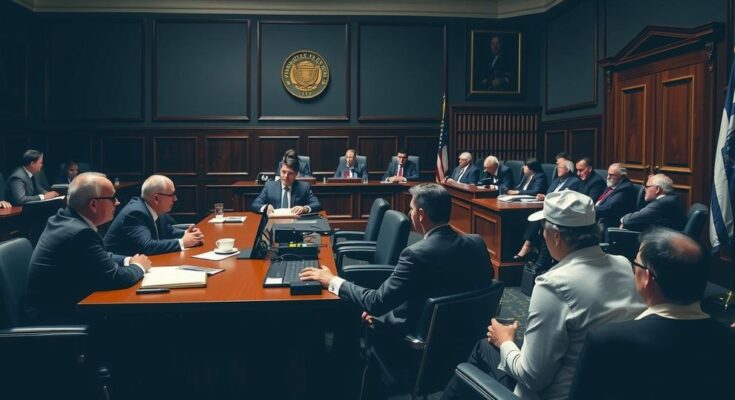The ICJ is hearing arguments that a small group of countries should be held accountable for climate change impacts, as they are the primary contributors to greenhouse gas emissions. Nations like Vanuatu advocate for reparations and legal responsibilities based on their experiences with climate change consequences. The proceedings involve testimonies from a diverse array of countries affected differently by climate issues.
A recent session at the International Court of Justice (ICJ) accentuates the plight of vulnerable nations concerning climate change accountability. Representatives from nations such as Vanuatu have argued that responsibility for the climate crisis rests with a small number of countries that have historically contributed the majority of greenhouse gas emissions. The court heard poignant testimonies illustrating how Pacific Island nations, already gravely affected by rising sea levels, are fighting against climate change consequences they did not cause themselves.
The proceedings, initiated in The Hague, witnessed compelling arguments highlighting that while emissions have surged over 50% since 1990, the most affected regions are those with minimal contributions to the crisis. The ICJ is set to hear from 98 nations, including heavyweight emitters such as the US and China, as well as nations like Bangladesh that continue to suffer significantly from climate-related disasters.
Ralph Regenvanu, Vanuatu’s special envoy for climate change, articulated how states are still generating large emissions despite warnings from the scientific community, underscoring the disproportionate impact on vulnerable nations. The discussions also touched on the legal obligations of countries under international law and the need for reparations linked to their historical emissions. Margaretha Wewerinke-Singh elaborated that states had breached these laws, which includes actions like granting fossil fuel extraction licenses.
The ongoing climate crisis has drawn attention to the accountability of countries contributing most to global greenhouse gas emissions. This situation has adversely impacted vulnerable nations, particularly in the Pacific, where rising sea levels and extreme weather events endanger livelihoods and sovereignty. The ICJ hearings stem from a resolution by the UN General Assembly to examine the legal responsibilities of states regarding climate change, aiming to address the urgent necessity for reparative justice and equity in climate action.
The recent hearings at the ICJ underscore the urgent need for accountability regarding climate change and highlight the protective rights of vulnerable nations. As nations prepare their legal arguments, the outcome of this advisory opinion could significantly influence international climate negotiations and the pursuit of reparations for environmental damages endured by those least responsible for the climate emergency.
Original Source: www.theguardian.com




